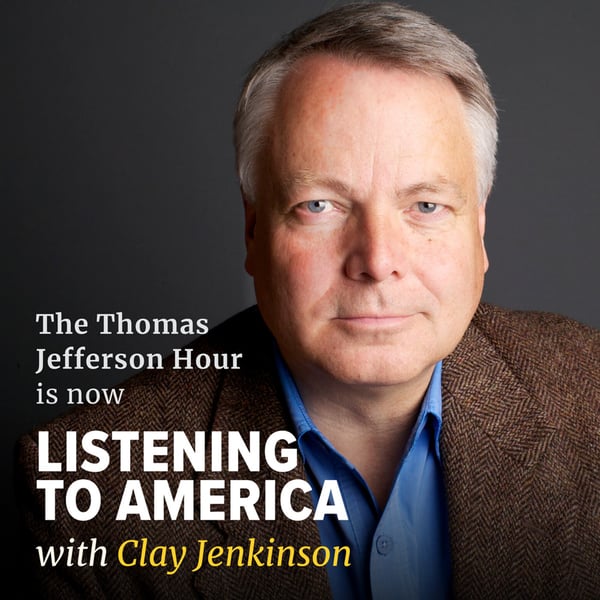#1612 Lindsay Chervinsky’s New Book
Listening to America
Listening to America
4.6 • 1.1K Ratings
🗓️ 13 August 2024
⏱️ 53 minutes
🧾️ Download transcript
Summary
Clay talks with Dr. Lindsay Chervinsky about her just-published book, Making the Presidency: John Adams and the Precedents that Forged the Republic. Lindsay explores how, in the nation's early days, John Adams and others pioneered a framework for the American presidency that we now take for granted. One example: The U.S. Constitution was largely silent about the peaceful transfer of power. Chervinsky notes the country was filled with anxiety to see George Washington retire and observe the transfer of power, a new and revolutionary feature of political life.
Transcript
Click on a timestamp to play from that location
| 0:00.0 | Hello everyone and welcome to this introduction of today's podcast edition of listening to America, |
| 0:04.8 | Dr Lindsay Trevinsky, whose new book, Making the Presidency John Adams and the Preced |
| 0:10.9 | the Republic, is now out and available. |
| 0:15.0 | Fantastic. |
| 0:17.0 | What a coup for us to have Lindsay Chervinsky as one of our dear friends and a frequent contributor to listening to America. |
| 0:23.0 | We talked about the transition from the Washington administration |
| 0:25.9 | to the Adams administration and to a certain degree |
| 0:28.2 | the Adams administration to the Jefferson administration. |
| 0:30.5 | As you know, Adams was a one-term president. |
| 0:32.6 | Felt great anxiety and following George Washington, who was already a central mythic |
| 0:37.8 | figure in American life. |
| 0:39.4 | But he had a strong sense of government and great self-assurance about how to administer things. He was a brilliant scholar. He had been there at the beginning. |
| 0:47.5 | He did more to forge the revolution than almost anybody else except George Washington, but he was the key figure in Congress for a long time. |
| 0:54.2 | He's the one who got Jefferson to write the Declaration of Independence, something that he probably |
| 0:58.2 | later regretted. |
| 0:59.5 | He also nominated Washington to be the Commander-in-Chief during the revolution. So he was a really |
| 1:04.8 | essential figure and then he becomes the heir apparent, his term, in a letter to |
| 1:09.7 | his wife Abigail, he takes over the presidency in 1797 he's a one-term |
| 1:14.6 | president broke his heart to be repudiated by the American people he had two real |
| 1:21.4 | challenges in being president, one is following Washington, and Jefferson rightly said nobody wants that role. |
| 1:27.0 | But secondly, we were caught up in the Napoleonic Wars and drawn into what was known as the Qu war, an undeclared naval war with France, and Adams had to peace his way through that, like everybody else in a republic except Hamilton. He believed that peace was the right path and diplomacy, but his cabinet really looked to New York and the Shadow President Alexander Hamilton for their plans, responses to the emerging set of events. |
| 1:50.0 | When Adams belatedly figured all this out, of course, he flew into a rage and had to get rid of several members of his cabinet. |
... |
Please login to see the full transcript.
Disclaimer: The podcast and artwork embedded on this page are from Listening to America, and are the property of its owner and not affiliated with or endorsed by Tapesearch.
Generated transcripts are the property of Listening to America and are distributed freely under the Fair Use doctrine. Transcripts generated by Tapesearch are not guaranteed to be accurate.
Copyright © Tapesearch 2025.

